Choosing the right type of insulation for your home is crucial for enhancing energy efficiency, comfort, and cost savings. Each type of insulation has unique properties, applications, and advantages. Our team at Perma-Seal has compiled an overview of the most common types of insulation, their uses, and their pros and cons.
We offer attic, basement, and crawl space insulation services for homeowners looking to improve their home comfort. Schedule your free insulation appointment today to get started.
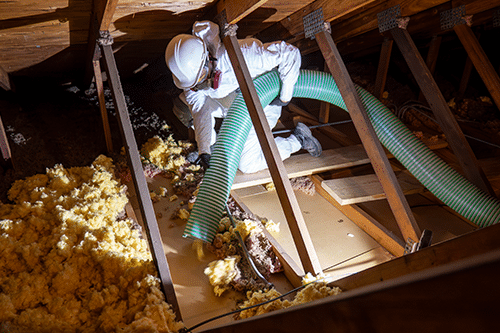
Fiberglass Insulation
Fiberglass insulation is made from fine glass fibers and is available in batts or loose-fill form. It is one of the most common types of insulation due to its affordability and effectiveness.
Uses:
- Walls
- Attics
- Floors
- Ceilings
Pros:
- Cost-effective
- Fire-resistant
- Good thermal and acoustic insulation
- Easy to install
Cons
- Can irritate skin and lungs if not handled properly
- Needs to be installed with a vapor barrier to prevent moisture issues
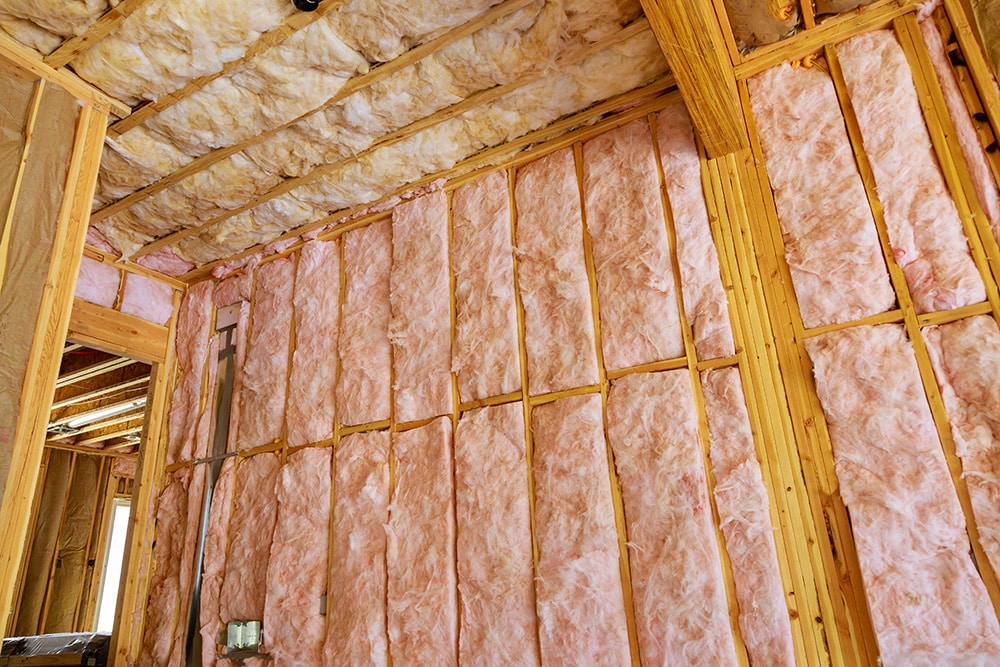
Cellulose Insulation
Cellulose insulation is an eco-friendly option that is blown into cavities, making it ideal for retrofitting and adding insulation to existing walls and attics. Our team uses cellulose insulation for all of our attic insulation projects.
Uses:
- Walls
- Attics
- Floors
Pros:
- Made from recycled materials (typically 85% recycled paper)
- Good thermal and sound insulation properties
- Effective at filling gaps and voids
- Treated with fire retardants
Cons
- Can settle over time, reducing its effectiveness
- Can absorb moisture if not properly installed, leading to mold issues
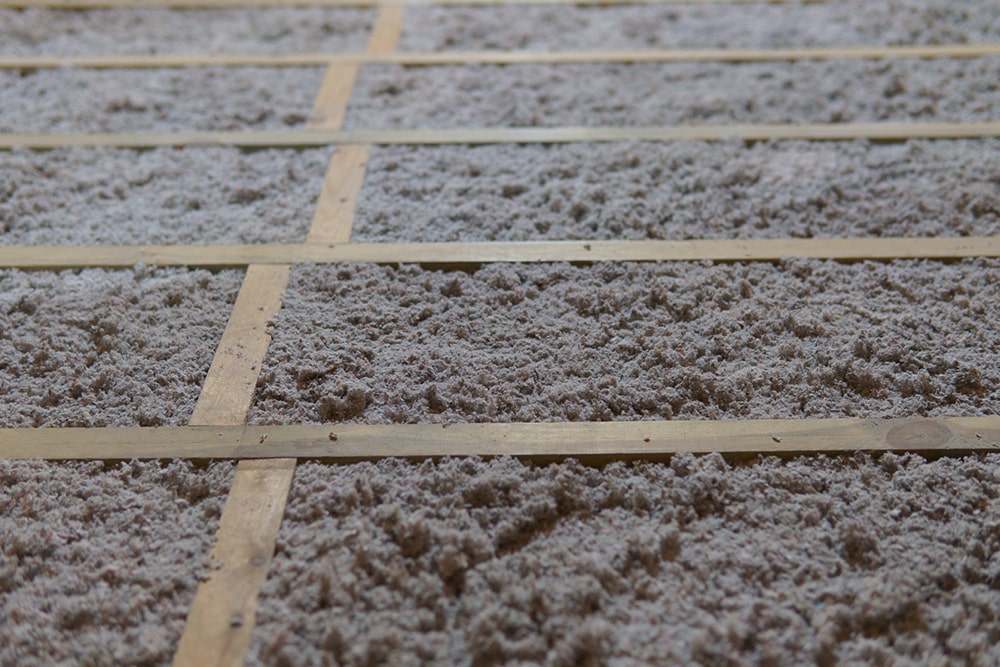
Spray Foam Insulation
Spray foam insulation is applied as a liquid that expands into a foam, creating a tight seal against air leaks. It is highly effective in providing an airtight barrier and is commonly used in areas that are difficult to insulate with traditional materials. Our Perma-Foam rim joist insulation service uses spray foam to seal around the rim joist area in basements and crawl spaces.
Uses:
- Walls
- Roofs
- Floors
- Rim joists
Pros:
- Excellent air barrier and thermal resistance
- Expands to fill gaps and cracks
- Can add structural strength to buildings
- Moisture-resistant
Cons
- Higher cost compared to other insulation types
- Requires professional installation
- Can be messy if not applied correctly
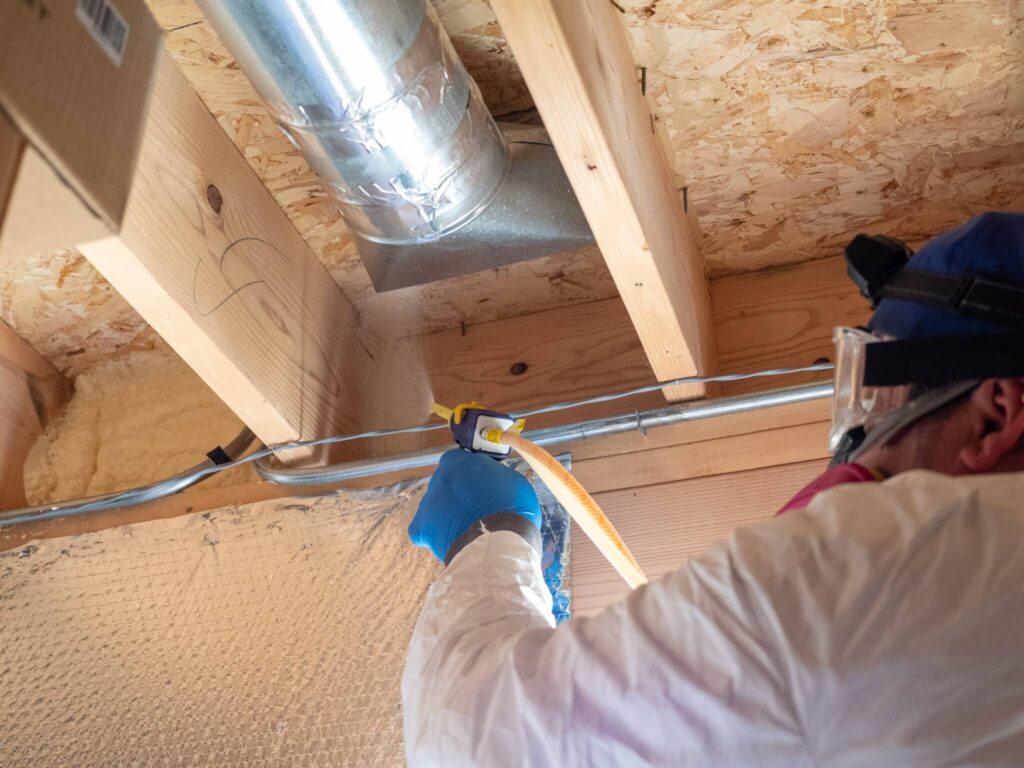
Foam Board Insulation
Foam board insulation, made from polystyrene, polyisocyanurate, or polyurethane, provides excellent thermal resistance and is used in various parts of a building to reduce energy loss. We use SilverGlo panels for crawl space and basement insulation projects.
Uses:
- Walls (interior and exterior)
- Crawl Spaces
- Basement walls
- Foundations
Pros:
- High R-value per inch
- Provides a continuous insulation layer, reducing thermal bridging
- Lightweight and easy to handle
Cons
- Can be more expensive than other insulation types
- Needs to be covered with a fire-resistant material if used indoors
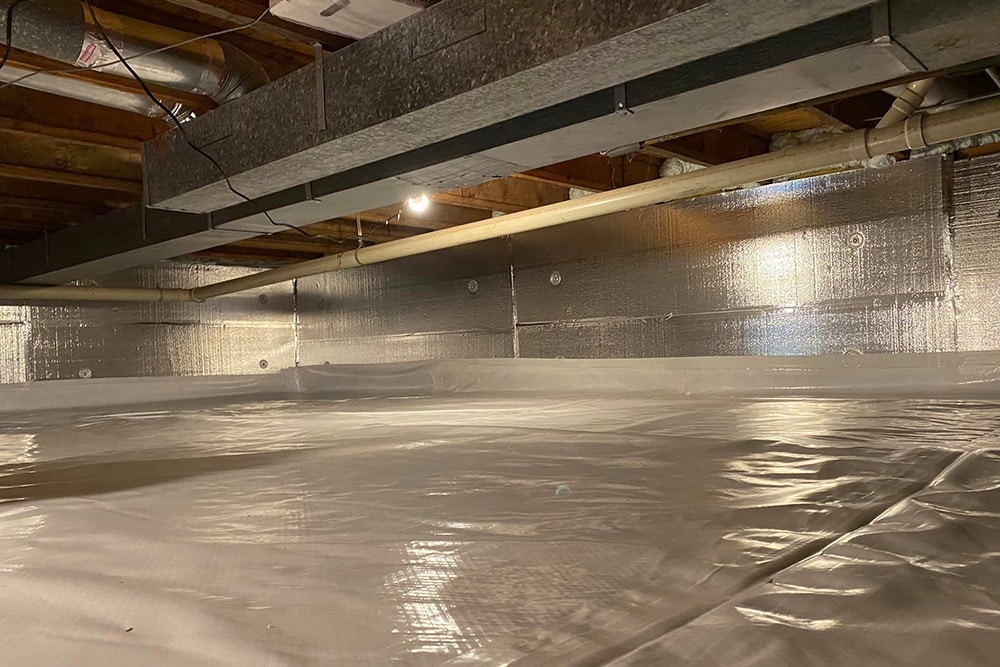
Mineral Wool (Rock Wool and Slag Wool)
Mineral wool insulation is made from natural rock or recycled slag from blast furnaces. It provides excellent fire resistance and soundproofing capabilities, making it a good choice for various applications.
Uses:
- Walls
- Ceilings
- Floors
- Attics
Pros:
- Fire-resistant
- Good thermal and sound insulation
- Does not absorb water
- Resistant to mold and mildew
Cons
- More expensive than fiberglass insulation
- Can be harder to find
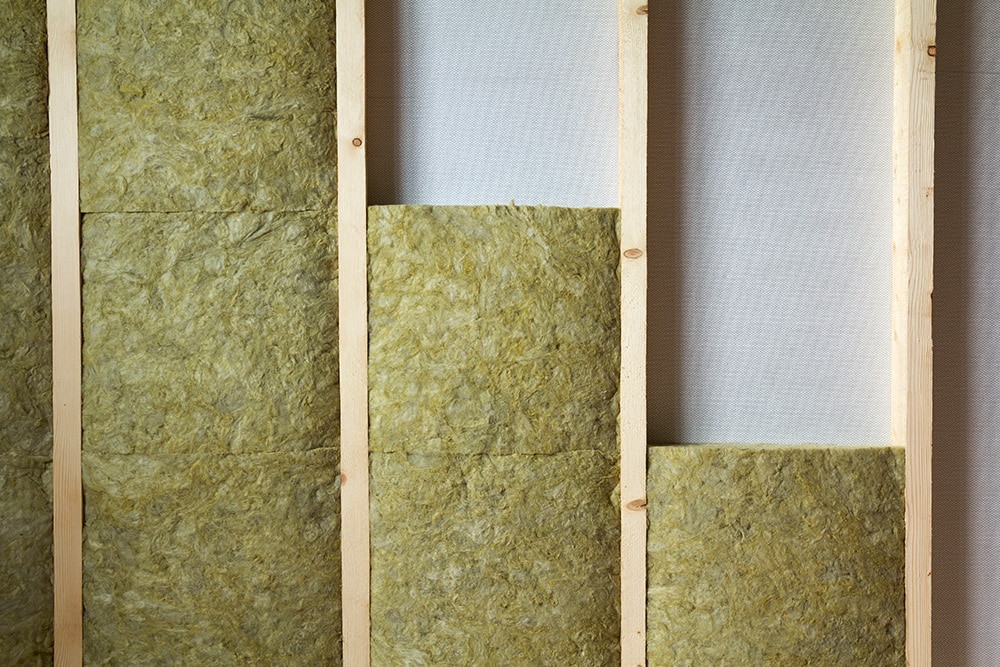
Contact Us Today For Home Insulation in Chicago
Choosing the right insulation depends on your specific needs, climate, and budget. Each type has distinct advantages and disadvantages. Our team will help you make the right choices for your home. Contact our experts today by calling 800-421-7325 or click the button below to fill out our online contact form.